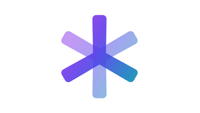What’s the Difference Between a Successful Business & a Failing Side Project?
Click play on the video above. It’s short and sweet and shares one of the most important paradigm shifts you could have early on in starting a business.
It’s ok, you can watch it. I’ll wait. It’s only 3 min.
Ok, let’s talk about this a bit.
This is the first lesson in one of our most popular courses here at Fizzle. (You can find a link to that course below with some other resources).
This is the course we tell everyone who joins Fizzle to take because it breaks the destructive habit described in the video.
The lean startup world calls this stage of business research “customer development,” which basically means: the process by which you allow the customer to develop your understanding of the problem… not the other way around.
We all start the other way around.
How Entrepreneurs Are Made
Most of us think about starting a business because we feel something akin to, “hey, I could do that!” Or maybe, “I hate my shitty-ass job!” is a more accurate origin story 🙂
“I could make a cupcake this good. In fact, I’d add a touch of salt on top. Could I start my own business?”
“I could make a better website than that. Could I start my own business?”
“I could help people define a better diet and lifestyle. Could I start my own business?”
“I could… could I?”
“I would… maybe I?”
Of course, along the way there’s plenty of, “no, I could never do that,” and “you seriously think you could start a business!? You’re crazy!” and “I don’t even know how to make a business plan!” along the way.
But, for many of us, the “could I?” is an itch that must be scratched… so we start exploring.
But here’s the thing: our exploration is dubiously self-centered and insular. We can’t see what we can’t see. We don’t know we have blinders on and we don’t know about the exercises that take the blinders off.
The Necessary Delusion
I was in that mode — blinders on, head down, living in a fantasy world of what “could be” — for the first 4 years of my small time business ventures.
I look back on that time fondly, actually. I wasn’t in any rush, so I was keen to experiment with stuff, just seeing how it all felt.
But more importantly, there’s what I call the “necessary delusion” of anyone who wants to start up something completely new and creative (like a business).
Somewhere in that dark place inside my rib cage I believed I could do this thing, I could be successful, even though I had no reasonable basis for that belief.
“I could…”
Necessary delusion.
For me, that delusion and those 4 years with the blinders on was fun and ultimately good — it helped me learn new skills and make great relationships. But it took a LONG time. I was young, had a day job, no kids, no real urgency or pressure to make something actually work. What could we do to speed this up and get to successful business performance faster?
That’s where the video above, defining and targeting a specific audience, brings a massive shift to the table.
A Quick Exercise
In Fizzle I get to watch people have this realization all the time.
“Oh my god, I thought I had it all together.”
“I was so blind.”
“Glad I caught that before wasting the next several years fiddling. Now I’ve got a plan to learn from my audience and build something that’ll work.”
There’s a lot more to learn about this shift in mindset about business, and I’ve put some links to podcasts and the course below, but here’s a simple way to implement this right now.
- Ask yourself: who is this thing for? Who will buy this? Who needs this thing I’m making?
- Ask yourself: where can I find them? Other blogs? Forums? Friends? Classmates?
- Find 5 of them and talk with them, BUT you only get to ask open-ended questions.
- “I notice you’re using excel to keep track of finances. What’s that like for you?”
- “We’re both studying journalism. What’s difficult about this right now for you?”
- “How do you feel about that cupcake?”
- “What’s been the hardest thing about getting in shape?”
- “Oh yea? Tell me more, go on.”
In my experience the magic happens when you combine a deep, innate care for a specific group of people with good listening skills and a focus on research before you make anything.
So, who do you care about and what do they struggle with?
Several Resources:
1. Course: Defining Your Audience — To me, this is the best bang for your buck on this topic. It’s meaty and actionable. But the real value is in the community forums you get to bring your questions to. It costs $1 to try it out for a month.
2. Podcast: Discover, Define & Target Your Audience (FS049) — This one (and the next one) are great episodes of our podcast because we get to hear how several successful business people approach this same topic. (Subscribe to the podcast if you want more conversations like these)
3. Podcast: Tactics To Understand Your Ideal Client, Reader or Market (FS050) — Another great episode of the podcast where we hear from even more entrepreneurs about customer development.
4. Podcast: Insights About Customer Service That Will Change The Products You Make (FS067) — One of the world’s best restauranteurs shares a phenomenal paradigm that will literally change the way you think about business. (Did you subscribe to the podcast yet!?)
5. Guide Book: Fizzle’s Guide to Defining Your Audience — This is a light version of the course with a few exercises and a couple great worksheets. (The Empathy Map and picture of Tyrion Lannister are worth the price of admission alone… also, it’s free.)
Note: I could have sworn I heard Derek Halpern do a “me me me” thing a long time ago but I can’t find it. So, hat tip to Derek on that idea.
Earn a living doing something you love.
Grow an audience and get paid for your work as an independent creator. Fizzle is where creators come to learn, share and make progress toward their online dreams.
I’ve taken a lot of courses and been involved in several paid communities since I started my business, but I’ve never ever felt like anyone CARED as much about seeing my reach my goals as the Fizzle Team. They show up for me as much as I show up for myself. Thank you SO much, you guys!
 Claire Pelletreau
Claire Pelletreau
ClairePells.com
📓 Articles & Announcements
-
8 Experiments to Spice Up Your Podcasting Routine
Is your podcast routine stuck in a rut? If so, we’ve got just what you need! Jane Portman from Userlist joins us on the blog today to share her podcasting genius. Keep reading for 8 experiments you can try when your podcasting routine needs spicing
-
Introducing Fizzle 2.0
Today is an exciting day for Fizzle. We’re announcing a complete refresh of Fizzle, including every aspect of our user experience – courses, content, live events and more. Since we first opened Fizzle in 2012, we’ve provided thousands of entrepreneurs and creators with training, coaching and community. Today, this refresh marks
-
The Secret to Creating Consistent Content (that nobody’s talking about)
Hands up if you easily create consistent content week after week without fail. My guess? Since you’re reading this article, that’s probably not the case. Despite what you may be thinking – you’re not alone. Lots of content
🎙️ Podcast Episodes
-
The EXITpreneur’s Playbook with Joe Valley
Joe Valley is an Author, Guest Speaker, EXITpreneur, Advisor, and Partner at Quiet Light. He has also built, bought, or sold over half a dozen of his own companies. Over the last nine years, Joe has mentored thousands of entrepreneurs whose goal is to achieve their own eventual exit. He
-
R&D Tax Credits with Tiffany Bisconer
Tiffany Bisconer is a CPA with over 20 years of accounting and tax experience. Tiffany worked with one of the top certified public accounting firms before becoming director of Acena Consulting. She combines her private industry and public accounting experience to work with CPA firms and directly with business owners
-
Behind the Scenes: Fizzle 2.0
This has been an exciting month for Fizzle! We recently announced a complete refresh of Fizzle, including every aspect of our user experience – courses, content, live events and more. Since we first opened Fizzle in 2012, we’ve provided thousands of entrepreneurs and creators with training, coaching and community.




